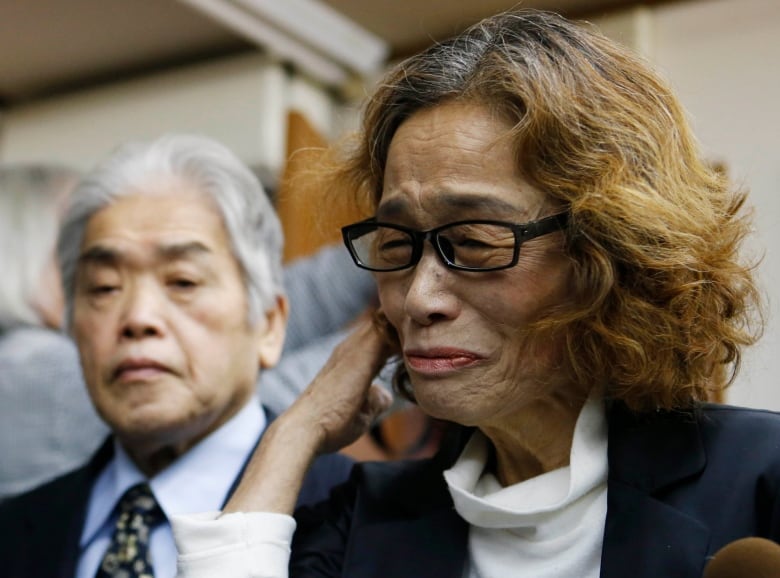Japanese journalist Kenji Goto's wife devastated after apparent ISIS beheading
Goto left for Syria in late October just a weeks after birth of his youngest daughter

The wife of slain Japanese hostage Kenji Goto said Monday she was devastated but proud of her husband, who was beheaded by Islamic State of Iraq and Syria (ISIS) extremists.
In a statement issued through the British-based journalist group Rory Peck Trust, Rinko Jogo requested privacy for her family as they deal with their loss, and thanked those who had supported them.
"I remain extremely proud of my husband, who reported the plight of people in conflict areas like Iraq, Somalia and Syria," she said.
"It was his passion to highlight the effects on ordinary people, especially through the eyes of children, and to inform the rest of us of the tragedies of war," she said.
- Boko Haram, ISIS and al-Qaeda: how the jihadists compare
- Stephen Harper makes his case for new powers to combat terror
Goto left for Syria in late October just a few weeks after the birth of the couple's youngest daughter. Soon after, he was captured by the militants.
Appalled and saddened by news of Goto's following the release of a video showing his killing, purportedly by ISIS, Japan has ordered heightened security precautions at airports and at Japanese facilities overseas, such as embassies and schools, government spokesman Yoshihide Suga said.
Until now, Japan had not become directly embroiled in the fight against the militants.
No increased terrorist risk: Abe

Citing previous cases, including a 1995 sarin gas attack in Tokyo's subways, Abe said he did not see an increased terrorist risk following savage threats in the purported ISIS video, which vowed to target Japanese and make the knife Goto's killer was wielding Japan's "nightmare."
Japan will persevere in providing humanitarian aid to countries fighting the Islamic State extremists, said Abe, who explained that bowing to terrorist intimidation would prevent Japan from providing medical assistance and other aid it views as necessary for helping to restore stability in the region.
The failure to save Goto raised fears for the life of a Jordanian fighter pilot also held by the Islamic State militants.
- ISIS releases purported audio message of Kenji Goto, Japanese hostage
- ISIS hostage swap not carried out despite sunset deadline
Jordan renewed an offer Sunday to swap an al-Qaeda prisoner for the pilot, Lt. Muath al-Kaseasbeh, who was seized after his F-16 crashed near ISIS's de facto capital, Raqqa, Syria, in December.
Jordan, Japan, reportedly negotiated with militants
Government spokesman Mohammed al-Momani told The Associated Press that "we are still ready to hand over" prisoner Sajida al-Rishawi, who faces death by hanging for her role in triple hotel bombings in Jordan in 2005. Al-Rishawi has close family ties to the Iraq branch of al-Qaeda, a precursor of ISIS.

Jogo, Goto's wife, said she had received several emails from unknown people claiming to be her husband's captors. But the hostage crisis became a national issue after the militants issued a demand for $200 million in ransom, to be paid within 72 hours, on Jan. 20.
Later, the militants' demand shifted to seeking the release of al-Rishawi, who survived the 2005 attack that killed 60 people when her explosive belt failed to detonate in the worst terror attack in Jordan's history.
Jordan and Japan reportedly conducted indirect negotiations with the militants through Iraqi tribal leaders, but late on Friday the Japanese envoy sent to Amman to work on the hostage crisis reported a deadlock in those efforts.
The UN Security Council issued a statement Sunday demanding "the immediate, safe and unconditional release of all those who are kept hostage" by the Islamic State group. Council members underlined the need to bring those responsible for Goto's "heinous and cowardly murder" to justice and stressed that the Islamic State group "must be defeated and that the intolerance, violence and hatred it espouses must be stamped out."